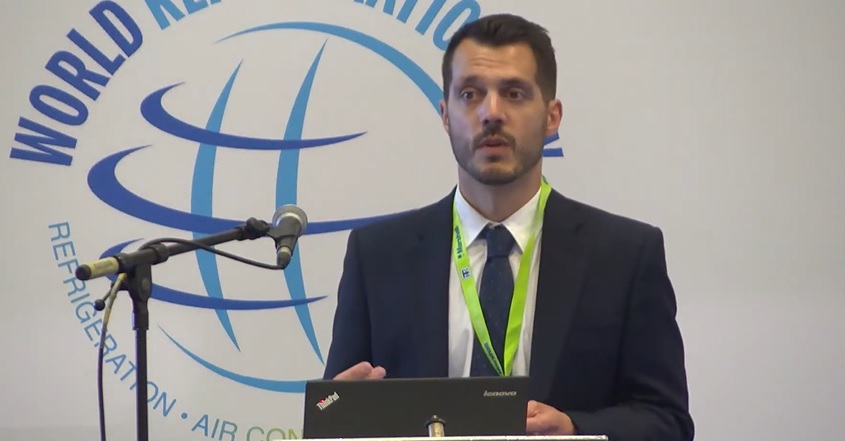Cold Chain industry leaders unite to meet crucial Net Zero 2050 goals

Leading experts will discuss overhauling the cold chain to drive UK energy efficiency at upcoming webinar
A panel of cold chain industry experts will discuss how the sector can reduce its carbon emissions on the 13th June from 10 am at a one-hour webinar hosted by the Cold Chain Federation, the UK’s leading temperature-controlled authority.
During the online event, Tom Southall, Policy Director at the CCF will introduce the Federation’s latest report, The Cold Store of 2050: Maximising Efficiency to Reduce Emissions & Drive Energy Transformation, and will be joined by a range of panellists, including Dr Alan Foster of London South Bank University, Jon Wyllie of Harlaxton Engineering Services, Shane Brennan of the Cold Chain Federation and David Wallace of Star Refrigeration.
David Wallace, said, “I am delighted to be contributing to this pivotal moment in today’s cold chain. The webinar will provide a great opportunity for all industry stakeholders to share knowledge and collectively launch a plan for the sector to improve the cooling efficiency of cold stores across the country.”
The report is part of the CCF’s Cold Chain Net Zero Project, an initiative aiming to bring the industry together to work toward the UK’s 2050’s decarbonisation goals, which launched in October 2020. In June 2019, the UK Government launched net zero targets of a 100% reduction in carbon emissions by 2050 – and in response, the new paper outlines how temperature-controlled warehouses could evolve to drive energy transformation in the UK, as part of the transition towards a net zero economy.
Evaluating the technologies that could be used to minimise energy consumption and current barriers to adoption, the report stresses the importance of businesses, government and UK energy network figures working in tandem to create a more energy-efficient cold chain.
One of the topics likely to be discussed at the webinar is the EU’s recent F-gas revision proposal published on 5th April 2022, which requires refrigeration plants to phase down their usage of HFC refrigerants, which cause global warming. Approximately 40% of cold stores are still using high GWP F-gases, but with the possibility of a near 50% cut in F-gas quotas by 2024, the industry will urgently need to assess the impact of the new regulation.
Wallace will touch on the critical point of what the EU regulation means for businesses as the industry will have to phase down the use of the most environmentally damaging refrigerants and accelerate the take up of natural gases such as ammonia and CO2.
The panel will look at how data and monitoring can help drive energy efficiency in the cold chain of the future and will evaluate funding models for energy efficiency projects. Experts will also discuss how significant a role cold stores play in the context of the UK’s emissions.
“Industrial refrigeration is by far the largest single contributor to a site’s energy use. With population growth on course to hit just under 10 billion by 2050, there’ll be increased demand for cold storage so it has never been more vital for the sector to improve efficiency and reduce cooling density.
Fortunately, new developments in modern data monitoring and performance optimisation systems mean that we can now forecast the future energy consumption of refrigeration plants to gain valuable insights into cooling systems’ inefficiencies.
Likewise, better building and refrigeration plant design can offer up to a 30% reduction in carbon emissions”.
As part of its Cold Chain Net Zero project, the CCF has released a series of 5 reports supported by a variety of events – all aimed at demonstrating how businesses within the sector can aid the transition to a more efficient, lower emission cold chain.
To access the CCF’s latest report, visit https://www.coldchainfederation.org.uk/cold-chain-net-zero-project/
To join in on today’s free webinar, sign up at https://register.gotowebinar.com/register/223105626217198862
